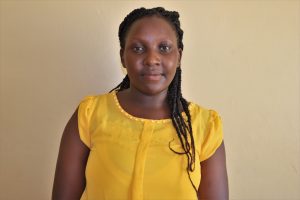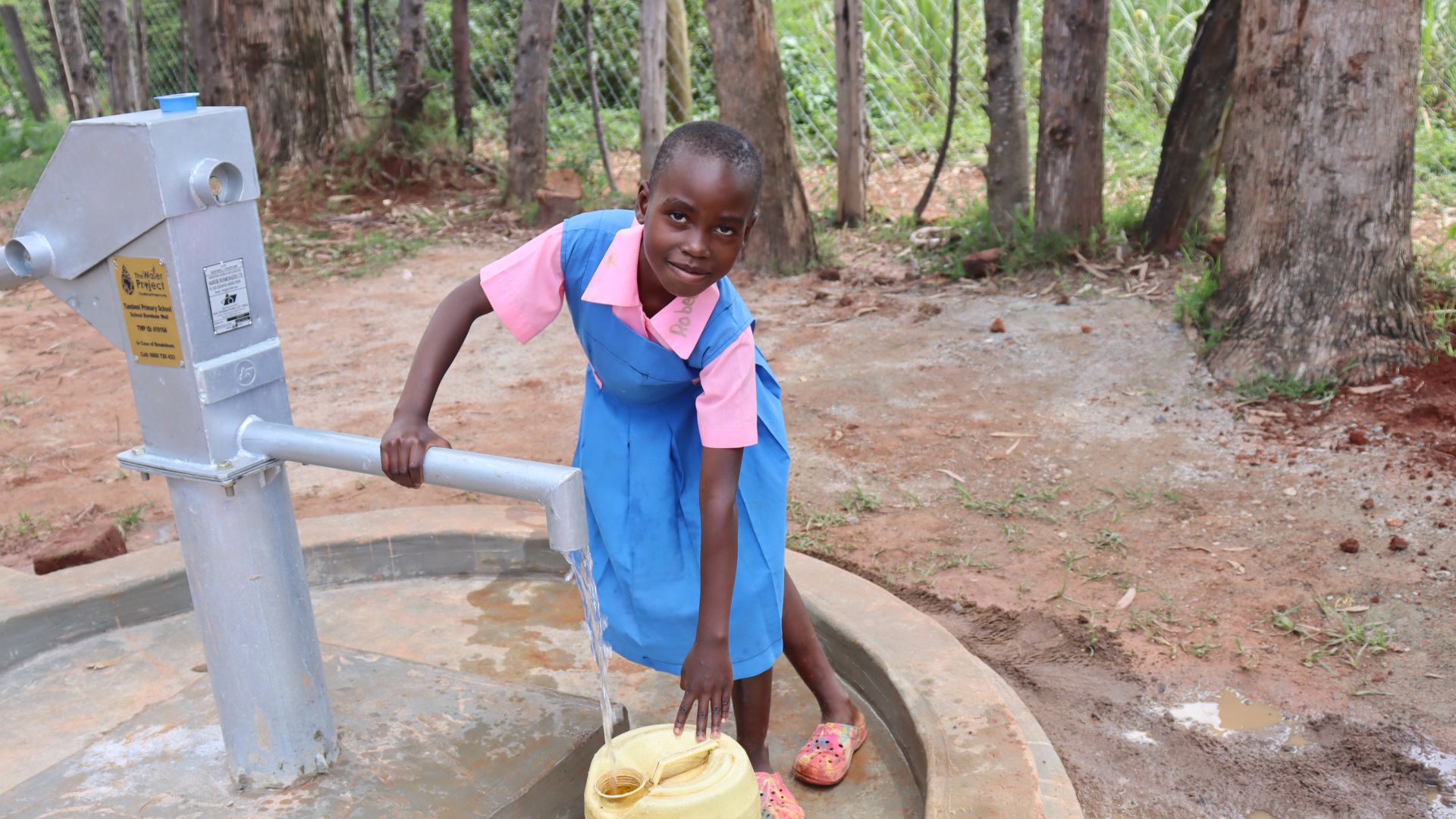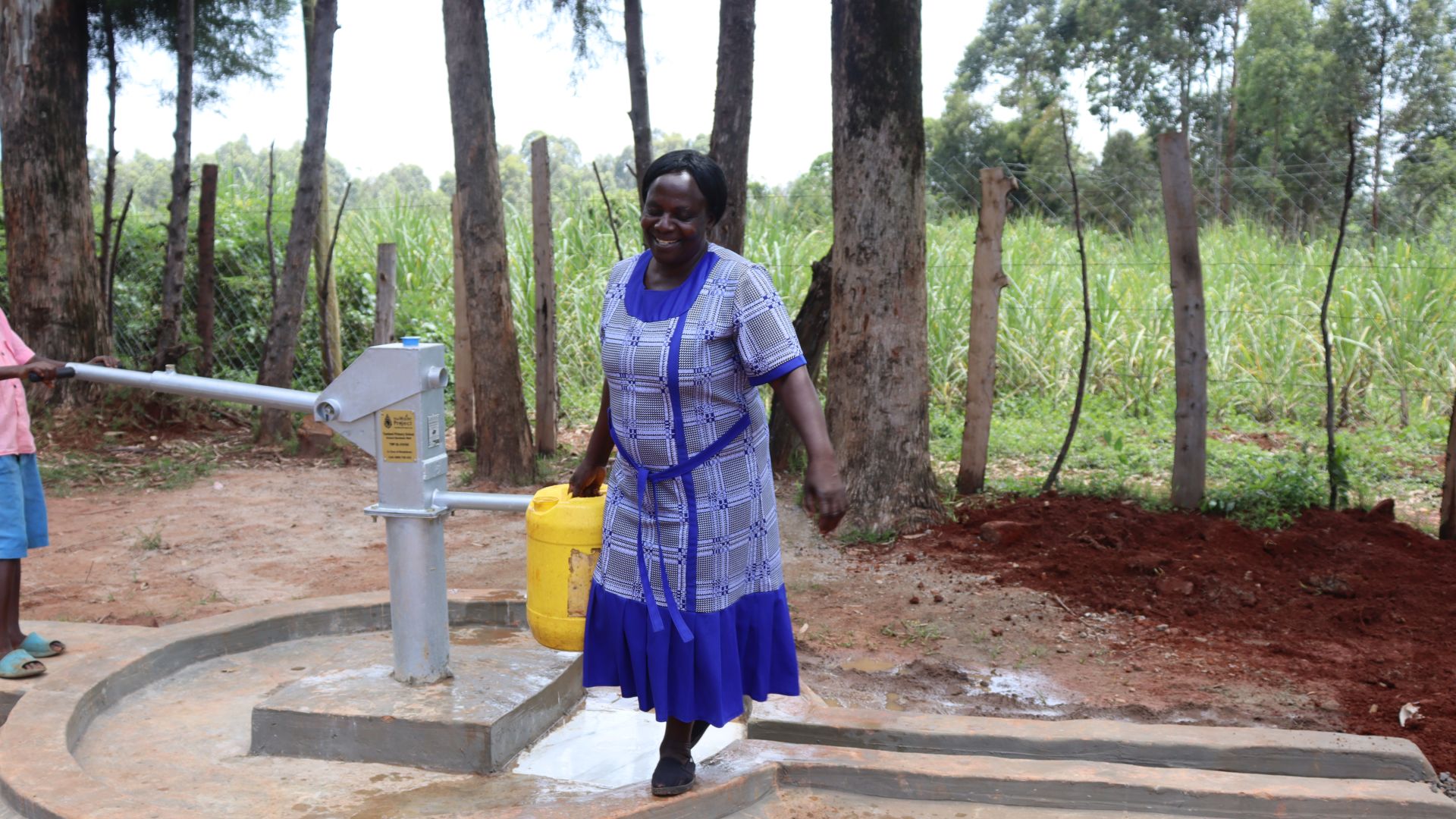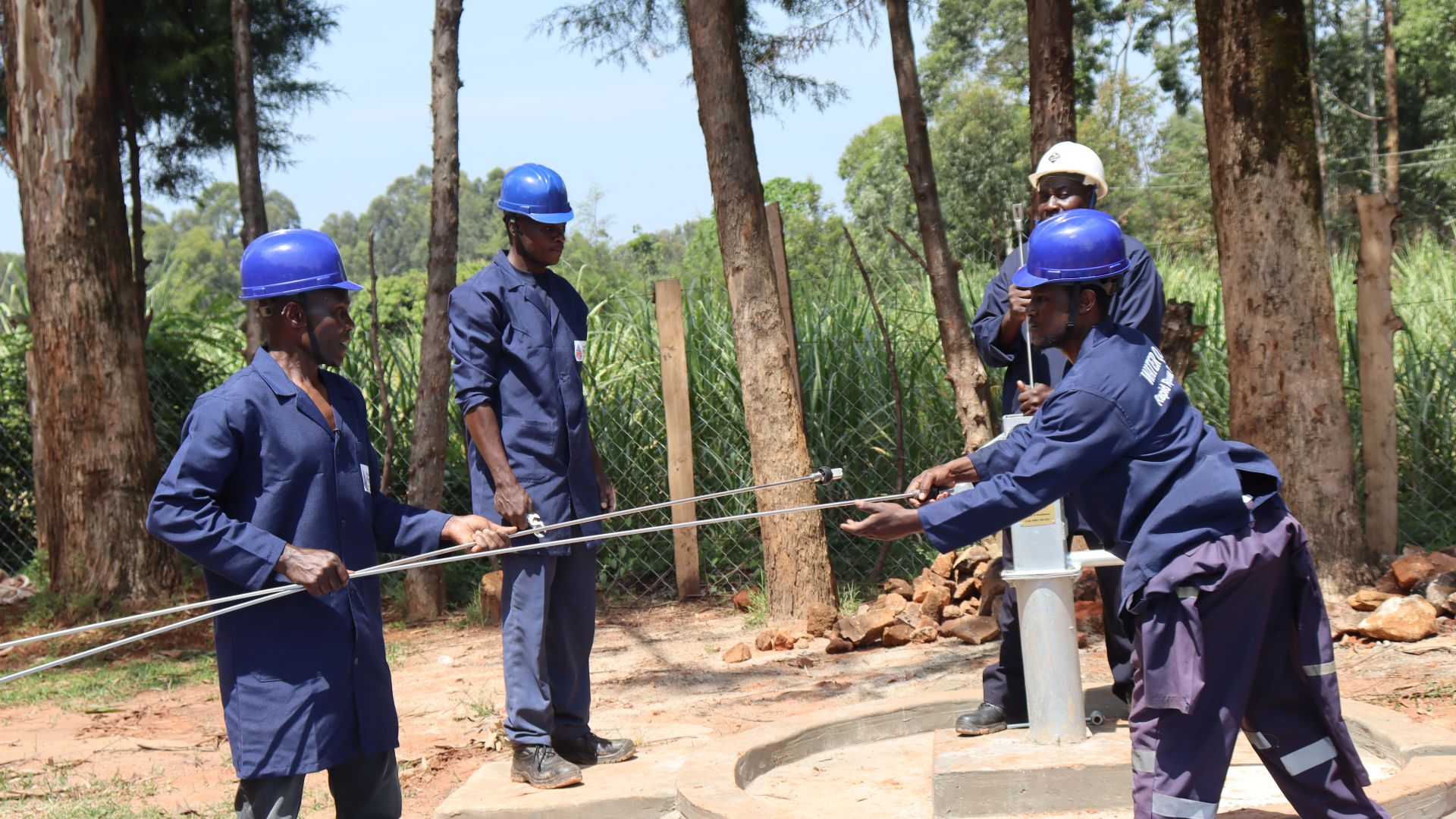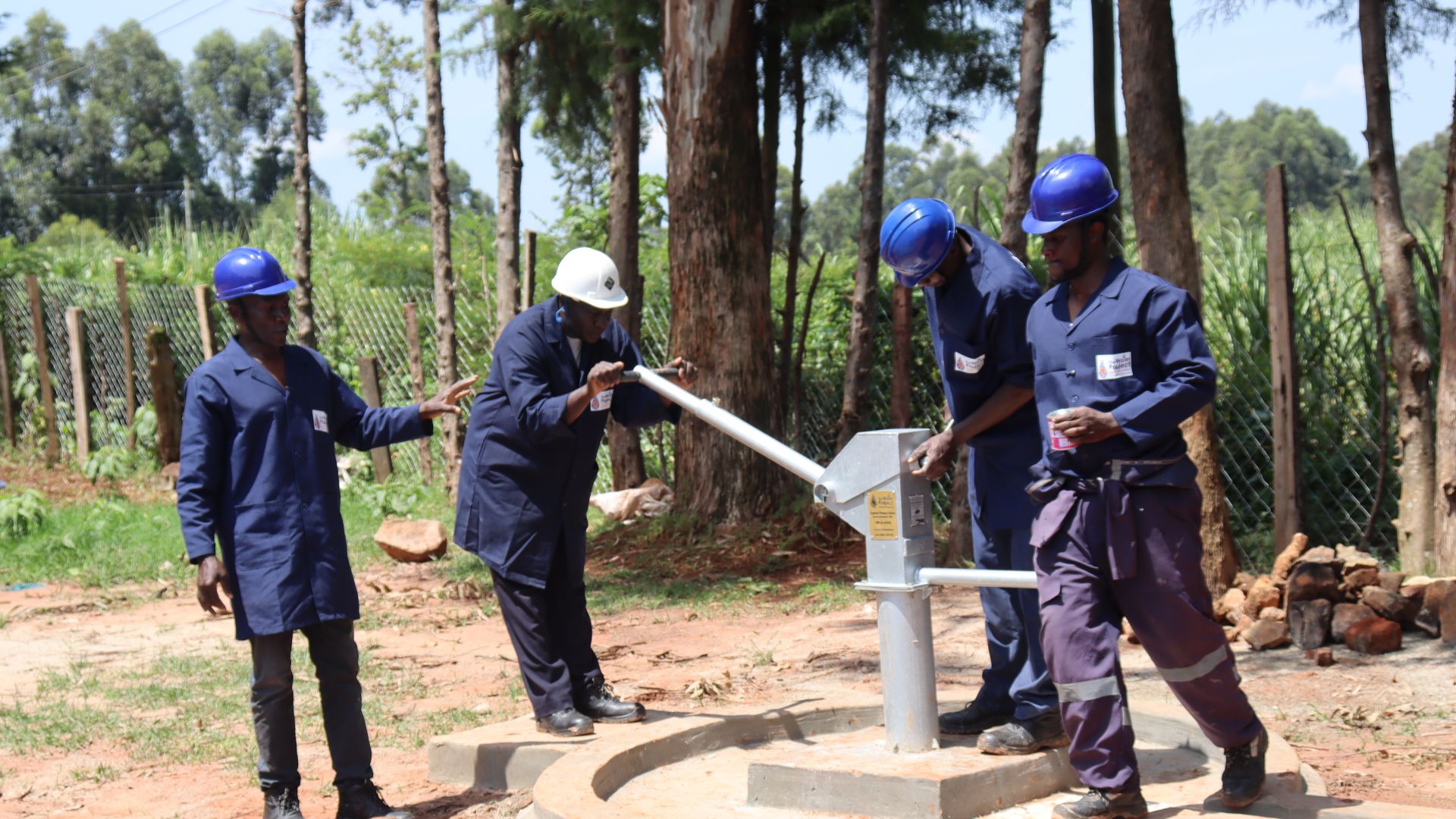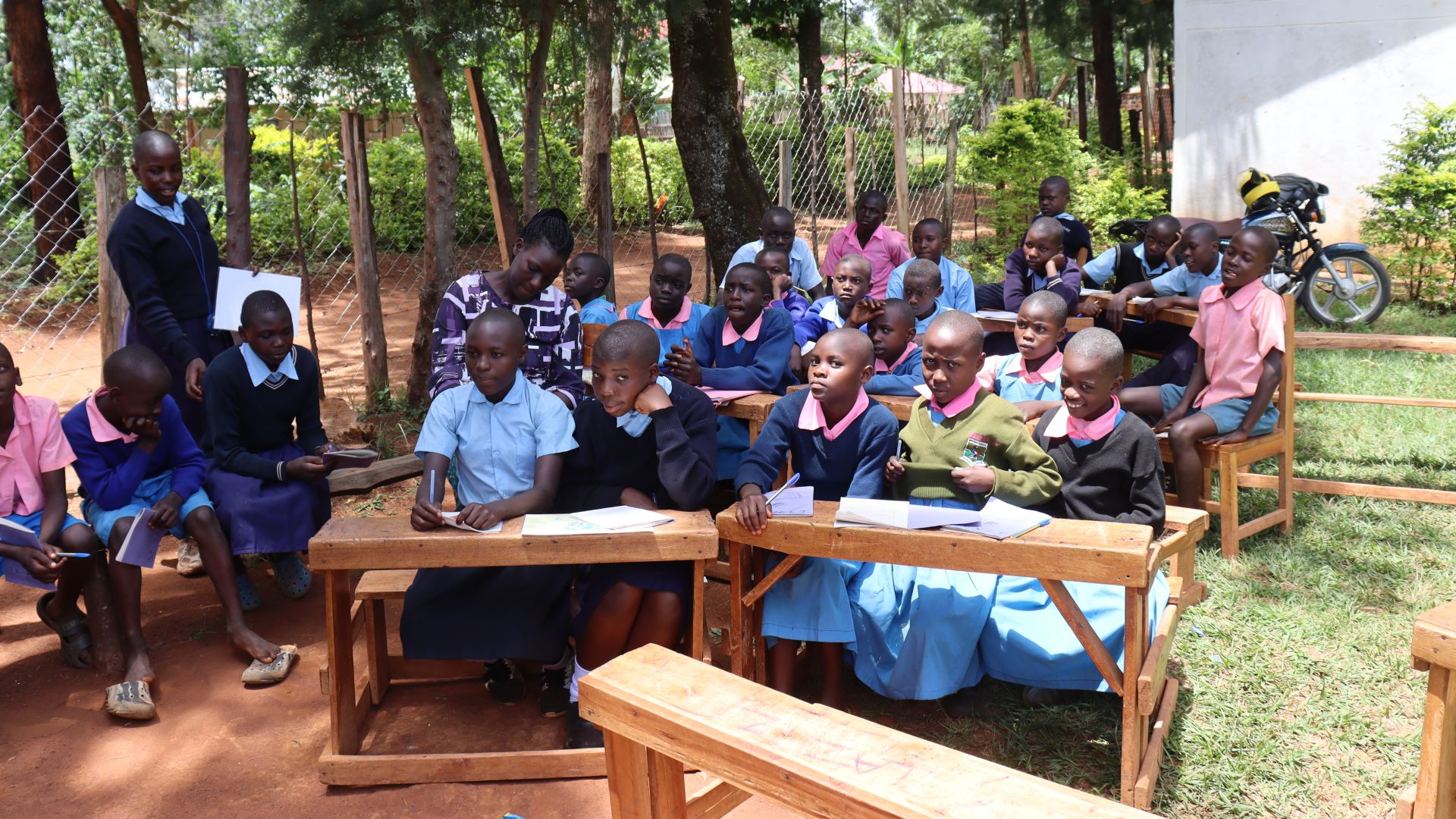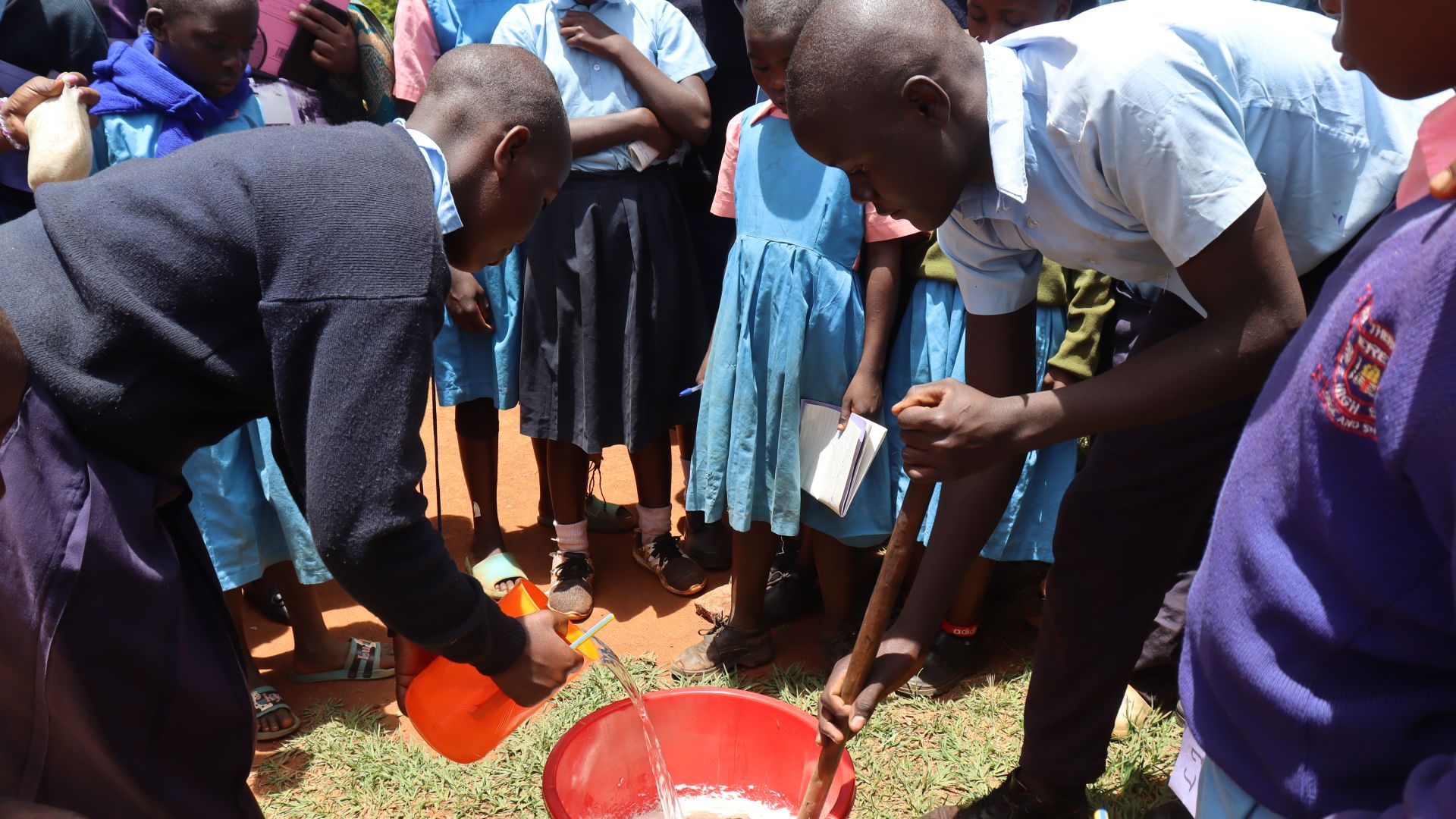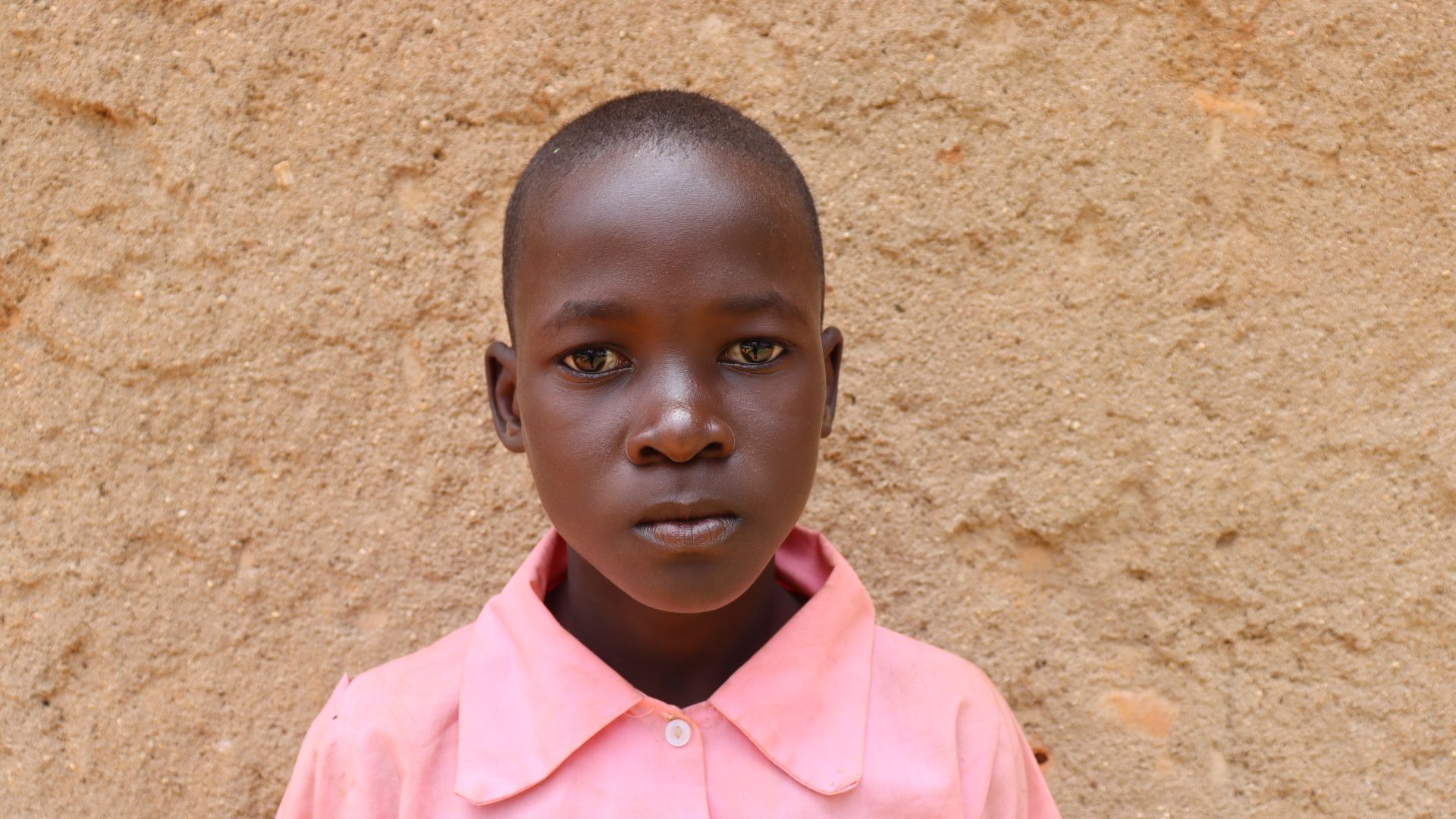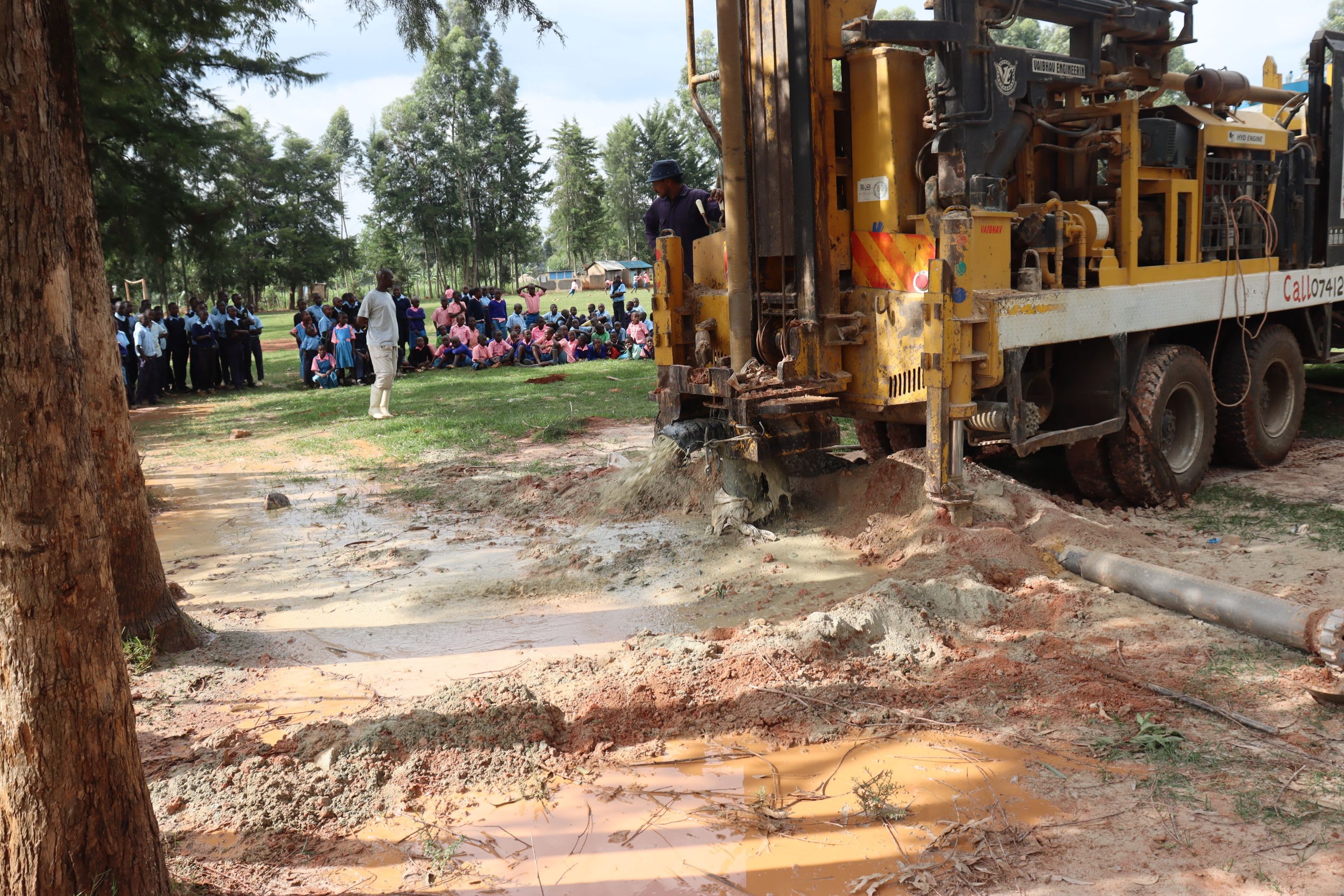Tumbeni Primary School has 535 students and 20 staff members who all struggle to access safe, sufficient water. The borehole near the school experiences frequent breakdowns and provides contaminated water.

The non-functional well.
"The water from this borehole is not clear, especially during the rainy seasons. It turns brown in color. The taste of the water is metallic, meaning it is not good for human consumption. The rods installed many years ago have rusted, and it has mechanical issues," shared Field Officer Nelly Chebet.
"Water-related illnesses have been reported by both the teachers and the pupils. Last term, they had so many complaints from pupils, which made them be sent to their parents and were taken to the hospital, and it was discovered that they had taken contaminated water," Nelly continued.
Their only other option is for students to bring water from home.
52-year-old Headteacher Enos Nalwa has seen it time and again.

Headteacher Enos Nalwa.
"Towards [the] end of last term, many pupils were complaining of stomach pain. The pupils did not even do their exams because they were not comfortable with the pain. However, they were taken to the hospital by their parents, and it was discovered that they [had] taken contaminated water. As the school headteacher, it impacted me negatively to see my pupils suffering," he shared.
"The learners and teachers miss lessons due to absenteeism as a result of sickness. This results to poor academic performance [for] the learners because much of the time is spent at home resting for the bodies to heal," he continued.

When sickness is introduced due to unsafe water, the whole school suffers. Families have to use their precious income to pay for medical treatment. The devastation caused by water-related illnesses knows no bounds.

A source students collect water from to be used at school.
Mr. Nalwa has to watch his students and staff suffer. Students cannot reach their full potential, as all their time is spent collecting water or reeling from its side effects.
"[The] unreliable water source has been so challenging. The teacher on duty has to ration the water used by the learners while cleaning their classrooms to minimize moving out of the school compound. Staff are being affected by water-related illnesses, which affect their work delivery," Mr. Nalwa continued.
Installing a new well on the Tumbeni Primary School campus will revitalize the student body and their ability to get a well-rounded education. Then, Headteacher Enos Nalwa can ensure his school thrives and increases enrollment, giving it a brighter future.

Steps Toward a Solution
Our technical experts worked with the local community to identify the most effective solution to their water crisis. They decided to drill a borehole well, construct a platform for the well, and attach a hand pump.
Well
Abundant water often lies just beneath our feet. Aquifers—natural underground rivers—flow through layers of sediment and rock, offering a constant supply of safe water. A borehole well is drilled deep into the earth to access this naturally filtered and protected water. We penetrate meters, sometimes even hundreds of meters, of soil, silt, rock, and more to reach the water underground. Once found, we construct a platform for the well and attach a hand pump. The community gains a safe, enclosed water source capable of providing approximately five gallons of water per minute. Learn more here!
Handwashing Stations
Alongside each water source, we install two gravity-fed handwashing stations, enabling everyone at the school to wash their hands. Handwashing is crucial for preventing water-related illnesses within the school and community. Student “health clubs” maintain the stations, fill them with water, and supply them with soap, which we often teach them how to make.
Latrines
We will construct two Ventilated Improved Pit (VIP) latrine blocks designed to prevent fecal disease transmission. Each latrine features a cement floor, making it easy to use and clean regularly. Three stalls will serve the girls, and three will serve the boys.
School Education & Ownership
Hygiene and sanitation training are integral to our water projects. Training is tailored to each school's specific needs and includes key topics such as proper water handling, improved hygiene practices, disease transmission prevention, and care of the new water point.
To ensure a lasting impact, we support forming a student health club composed of elected student representatives and a teacher. These clubs promote hygiene practices schoolwide and keep handwashing stations well-stocked. This student-led model encourages a sense of ownership and responsibility.
Safe water and improved hygiene habits foster a healthier future for everyone in the school and the surrounding community.

 Borehole Well and Hand Pump
Borehole Well and Hand Pump
 Rehabilitation Project
Rehabilitation Project












